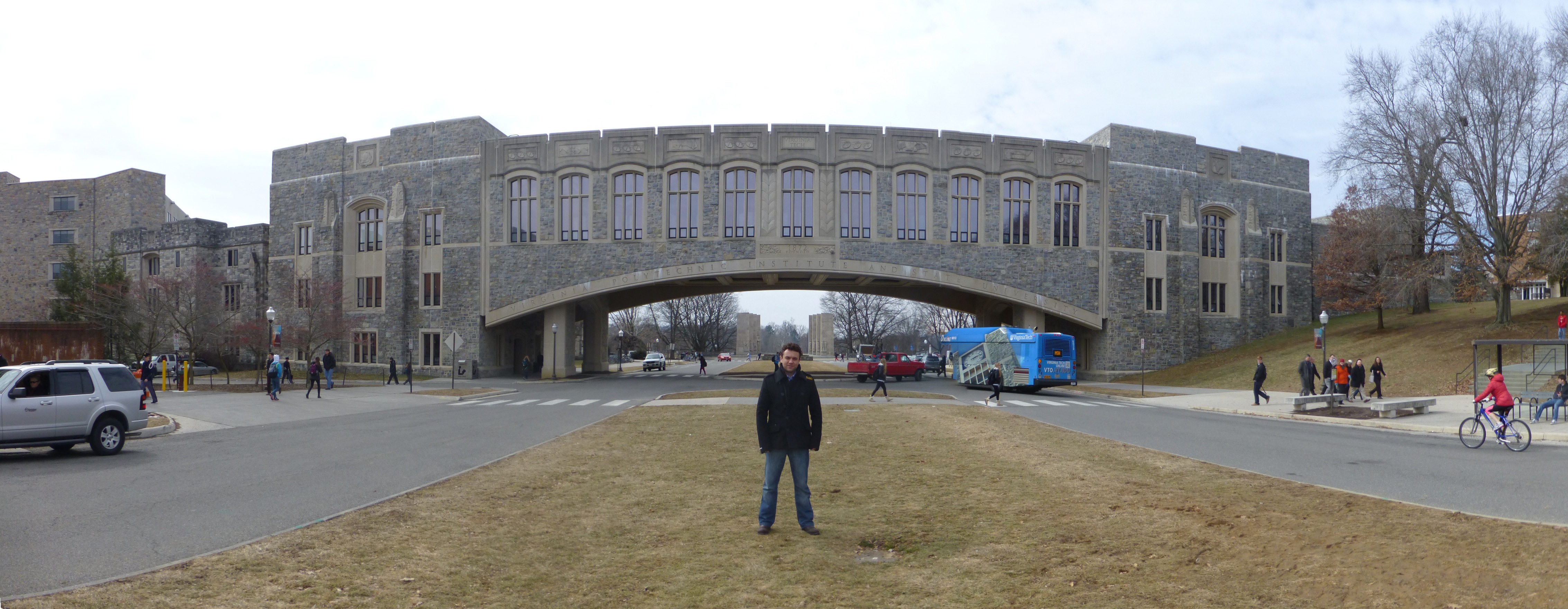Virginia Center for Coal and Energy Research (VCCER)
The Virginia Center for Coal and Energy Research (VCCER) was founded on the 30th March 1977. The VCCER was placed under the Virginia Tech Provost in July 1977.
The VCCER is linked to the College of Engineering at Virginia Tech, namely the Department of Mining and Minerals Engineering. Virginia Tech is ranked 26th among National Public Universities and 70th among all National Universities (U.S. News and World Report’s “America’s Best Colleges 2016).
The mission of the VCCER is to coordinate and disseminate coal and energy research information and data to the Commonwealth of Virginia. The center examines the socio-economic implications related to energy and coal development and the associated environmental impacts.
The center participated in phases 1 and 2 of the now completed Southeast Regional Carbon Sequestration Partnership (SECARB) and the SECARB-ED project.
Areas of Current Research Activity
VCCER has an extensive portfolio of research activity. The center is currently leading research in the following areas:
- Carbon Management and sequestration
- Energy Statistics and modelling
- Socio-economic effects of energy and coal development
- Environmental impacts of coal and energy
- Sustainable development of energy and mineral resources
- Optimisation of mining systems
- Energy efficiency studies
- Coal bed methane extraction and utilisation
- Energy infrastructure studies
- Innovative training programmes
Development of Research Programmes
VCCER continues to develop new programmes of research both at state-level for the Commonwealth of Virginia and globally:
- Environmental impacts of energy resources extraction and utilisation
- Public policy issues related to energy, marketing, and transportation of coal
- Integration of high technology into systems design and education
- Global energy development
- Sustainable development issues
- Deregulation issues of the electric utility industry
Research Facilities
The VCCER has access to laboratory facilities within Virginia Tech as well as plants, mines and industrial facilities in the Commonwealth. It is currently involved with two small-scale carbon dioxide (CO2) injection test sites.
The goal of both test sites is to understand the relationship between CO2 and hydrocarbons in underground geological formations, by assessing their potential for CO2 storage and enhanced hydrocarbon gas recovery.
A $15 million multi-part project running from 2011, with the National Energy Technology Laboratory (NETL) of the U.S. Department of Energy, to inject 20,000 tons of CO2 into the Oakwood coal bed methane field in Buchanan County, Virginia.
The Oakwood coal bed is a stacked coal reservoir of 15 to 20 thin coal seams. These are unmineable and sit at a depth of 305 – 670m (800 – 2200 ft.)
The 20,000 tons of CO2 is currently being injected over the course of one year into three legacy production wells.
There are:
- 3 legacy production/ injection wells with multiphase flow meters
- 3 multi-zone monitoring wells with surface and down-hole pressure and temperature gauges
- 20 off-set producing wells monitoring water and gas quality and production
- 28 stations for a micro-seismic array
- 20 monuments for a GPS array
The project is currently in the injection phase.
A project running from 2009 to inject 510 tons of CO2 into the Chattanooga Shale Formation in Morgan County, Eastern Tennessee. The formation sits at a depth of 792 – 1036m (2600 – 3400ft.)
The 510 tons of CO2 were injected over the course of 14 days into one legacy production well in a ‘huff and puff’ style. This equates to an injection rate of 40-50 tons a day. The CO2 had a shut-in period of four months and a flowback period of approximately eight months.
There are:
- 1 legacy production/ injection well
- 13 off-set producing wells for monitoring and gas and water (3 horizontal and 10 vertical)
- Sample sites for surface water sampling
- Results to date indicate closed system behaviour and enhanced heavy hydrocarbon recovery.
The project is currently in the post-injection monitoring phase.
If you wish to read more about the two test sites you can download a briefing produced by Dr Nino Ripepi, Dr Michael Karmis and Dr Ellen Gilliland of VCCER, for SECARB.
Novel UK-USA Partnership
GERC and VCCER have taken a huge step towards strengthening the partnership with the creation of three Assistant Professor positions in Geoenergy Engineering and Chemical & Environmental Engineering. Meet Dr Bagus Putra Muljadi, Dr Bahareh Nojabaei and Dr Ellen Gilliland. As part of the programme all three professors will hold an Affiliated Assistant Professor position at the other centre. These appointments are under the University of Nottingham and Virginia Tech joint initiative, which is a best with best alliance to enable high-impact research. We are the first UK-USA partnership to do this.
This partnership is novel due to its overarching, multi-scale and heuristic approach towards impacts in energy production and CO2 management.
GERC is also engaged in the International Research Experience for Students (IRES) programme, supporting Virginia Tech engineering students in gaining international research experience at the University of Nottingham.

GERC and VCCER have combined capabilities in:
- Site monitoring; geophysics, remote sensing, rock/ fluid sampling
- Fluid and rock analysis; mineralogy/ petrography, advanced 3D imaging, novel gas sorption analysis, accelerated geochemical processing
- Multi-scale modelling; multiphase fluid flow from pore scale to reservoir scale